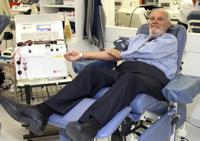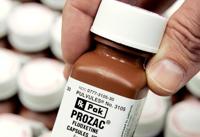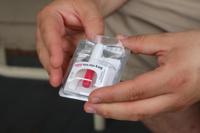EDMONTON - As the number of measles cases in Alberta continues to rise, the organization representing its doctors says the government needs to ramp up public messaging and prevention.
In its latest numbers posted Friday, the provincial government reported 137 total cases since March, exceeding the most recent high of 123 cases reported in the province 25 years ago.
Alberta Medical Association president Dr. Shelley Duggan said the numbers suggest that within weeks, that count could skyrocket to more than 1,000.
"As a physician who's been practising for over 20 years, IŌĆÖve never seen measles. I suspect IŌĆÖm going to," she said.
She said Alberta needs to offer regular, weekly public briefings, seriously expand public messaging and set up booster clinics in areas with low vaccination rates.
"It really has to be a multi-pronged campaign, and we need to have started yesterday," she said.
Duggan said for every one case of the measles, you can assume that up to 18 individuals can get infected if exposed.
ŌĆ£My jaw dropped when I saw over 1,000 cases in Ontario, but it shouldnŌĆÖt have, because it was kind of predictable," she said.
The disease is highly contagious. Alberta's dedicated measles website notes that if you have it, you can spread it before you show any symptoms, including a rash.
Duggan said the province doesnŌĆÖt have a high enough vaccination rate to prevent measles from circulating - a rate that is ideally above 95 per cent. She said even in urban centres like Edmonton and Calgary the rate is only at around 70 per cent, and there are pockets of the province that are at 50 per cent or lower.
ŌĆ£(If) someone has been in a room who is infectious, that room is still infectious for two hours right after they leave. So even if youŌĆÖre a mathematician and have no medical training, those numbers should frighten you,ŌĆØ said Duggan.
She noted that those who suffer most are children under the age of five.
Nine people with confirmed cases have been hospitalized in Alberta.
Duggan is one of many medical voices, including former chief medical health officer Dr. Mark Joffe, sounding the alarm about the risks after the public health authority issued bulletins to warn people of potential exposures.
Speaking at the University of AlbertaŌĆÖs department of medicine Friday, Joffe said while most recover from the measles, some donŌĆÖt.
"ItŌĆÖs not a mild disease. It's a miserable disease that goes on for a miserable seven to 10 days," he said.
Earlier this week, Joffe penned an opinion piece in the Edmonton Journal warning of the dire potential health complications of a measles infection, which for a very small number can lead to a brain infection, chronic disability or death.
Health Minister Adriana LaGrange shared the article on social media, thanking Joffe for ŌĆ£highlighting the importance of measles vaccination and awareness.ŌĆØ
An Alberta Health official said in an email Friday the province is running a social media campaign and is working on an "expansive" print, digital and radio advertising effort about measles and the importance of getting vaccinated.
"While the current situation in the province is concerning, the vast majority of cases remain traceable," the statement said.
"We are seeing an increase in immunizations for measles ŌĆō for example, between the weeks of March 16 and April 13, 27,094 vaccines have been administered, an increase of almost 66 per cent from the previous time period last year."
This report by ║┌┴Ž│į╣Ž═° was first published April 25, 2025.







































